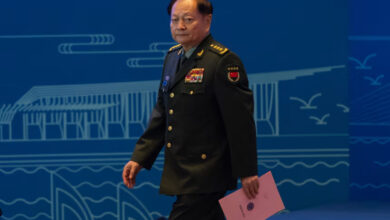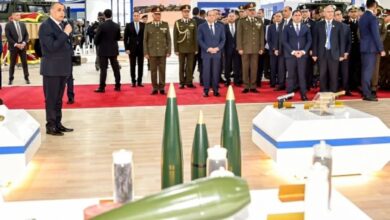The Constituent Assembly on Wednesday approved the articles in the draft constitution that pertain to the Armed Forces, including articles allowing military trials of civilians and stipulating that the military budget is not subject to parliamentary oversight.
State-run newspaper Al-Ahram reported that the assembly approved an article allowing the Military Prosecution to try civilians for crimes that “harm the Armed Forces.”
The text was proposed by Freedom and Justice Party leader Mohamed al-Beltagy, the paper said, and stipulates that military trials of civilians would only occur in exceptional cases, while civilians could not normally be prosecuted in a military court.
The article also establishes a National Defense Council, headed by the president, with the membership of the speakers of both chambers of Parliament, the prime minister, the ministers of defense, foreign affairs, finance and interior, the chief of intelligence, the chief of staff of the Armed Forces, the commanders of the Navy, the Air Force and the Air Defense Force, the commander of operations of the Armed Forces, and the chief of military intelligence.
Also, the president may invite specialists and experts to attend the council’s meetings.
The council shall consider means of securing the country and its integrity, discuss the military budget, and be consulted on draft laws relating to the military. Further powers shall be granted to the council in accordance with the law.
The assembly also approved Article 196, which requires that the defense minister should be an army officer, and that he is the commander in chief of the Armed Forces.
In December, wide controversy arose between the former ruling military council and politicians over parliament oversight of the military budget. The suspended Constitution of 1971 did not allow Parliament to discuss it, also stipulating that it would be listed as one figure in the state budget without details.
Reform advocate Mohamed ElBaradei said last December that the budget of Egypt's Armed Forces should be monitored by the people through a representative Parliament, referring to most countries in the world, where the military publicly discloses its budget and a representative legislature oversees its economic activities. He noted that transparency exceptions could be made if national security were concerned.
ElBaradei’s comments came in response to Supreme Council of the Armed Forces member Major General Mokhtar al-Mulla, who said that military budget would remain autonomous from parliamentary oversight.
Edited translation from Al-Masry Al-Youm




